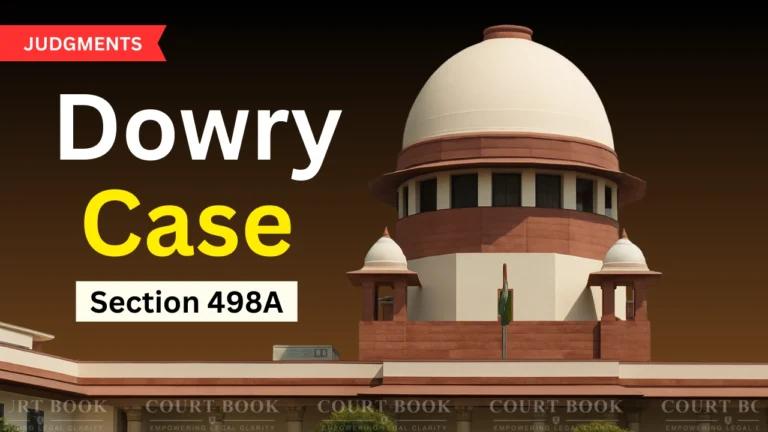In a significant ruling delivered on Friday, the Supreme Court set aside criminal proceedings against three family members in a dowry harassment case, while making it clear that the complainant’s husband will still stand trial. The case, which had been lingering since 2022, involved allegations under Sections 498-A (cruelty for dowry), 377 (unnatural offences), and 506 (criminal intimidation) of the Indian Penal Code.
Background
The dispute traces back to July 2021, when the complainant married Piyush Jain in Nagpur. Soon after, she alleged that her husband’s family repeatedly demanded gifts and subjected her to harassment. An FIR was lodged in February 2022 at Bajaj Nagar Police Station, Nagpur, initially under Section 498-A, but later extended to include charges of unnatural sex and threats.
Read also: Supreme Court Cancels Bail of Delhi Couple Accused of ₹6 Crore Land Fraud, Orders Fresh Custody
While the Bombay High Court (Nagpur Bench) had refused to quash the case, observing there was enough material for trial, the in-laws-father-in-law, mother-in-law, and sister-in-law-challenged that decision in the Supreme Court.
Court’s Observations
The bench of Justices B.R. Gavai, K. Vinod Chandran, and Atul S. Chandurkar closely examined the FIR and supporting material. Justice Chandurkar, pronouncing the judgment, noted: “General and vague allegations cannot be the basis for forming a prima facie case. The FIR, even taken at its face value, does not disclose specific acts of cruelty by the appellants.”
The court stressed that to sustain a charge under Section 498-A, there must be clear and particular allegations of cruelty with the intent to cause grave harm or coerce unlawful demands. Except for one incident involving a call for clothes and jewellery, the rest of the statements were broad and unspecific.
On the more serious charges of unnatural sex (Section 377) and criminal intimidation (Section 506), the bench pointed out that those accusations were directed only against the husband. “There is no allegation whatsoever against the present appellants in that context,” the bench observed.
Read also: Supreme Court Orders Liquidation of Bhushan Power & Steel, Quashes JSW’s ₹19,350 Crore Resolution Plan
Decision
Holding that the continuation of trial against the in-laws would amount to “an abuse of process of law,” the Supreme Court quashed the FIR and subsequent proceedings as far as they were concerned. However, the order drew a sharp line: the husband, accused directly under Sections 498-A, 377, and 506, will still face trial on his own.
The court concluded: “Our adjudication is confined to the appellants. Proceedings against the accused-husband shall be decided on their own merits.”
With this, the appeal of the in-laws was allowed, while the complainant’s fight against her husband in the dowry and cruelty case continues.
Case: Sanjay D. Jain & Ors. vs. State of Maharashtra & Anr.
Date of Judgment: 26 September 2025















